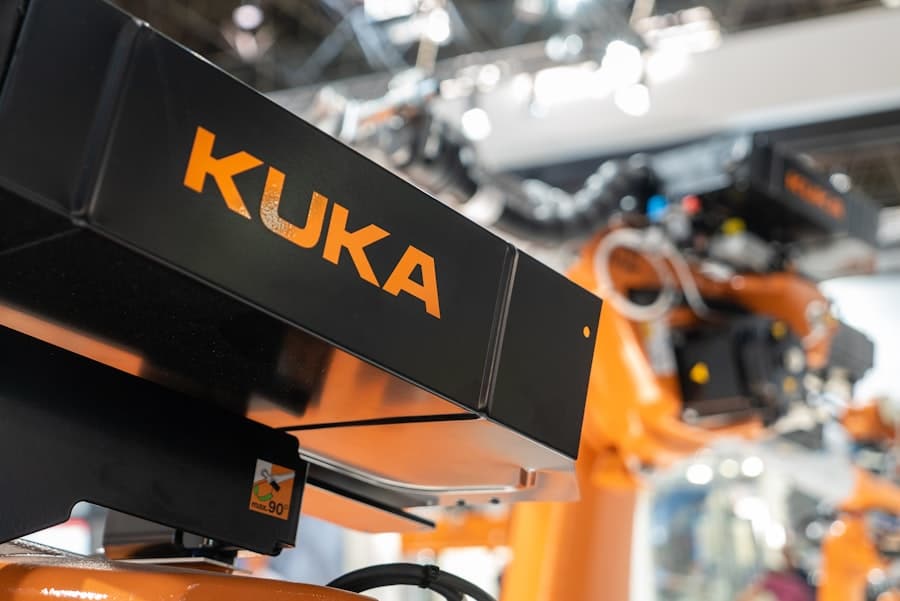Artificial Intelligence (AI) and automation have emerged as transformative forces in the modern economy, reshaping industries and redefining the nature of work. AI refers to the simulation of human intelligence processes by machines, particularly computer systems, which can perform tasks such as learning, reasoning, and problem-solving. Automation, on the other hand, involves the use of technology to perform tasks with minimal human intervention.
Together, these technologies are not only enhancing productivity but also altering the landscape of employment across various sectors. The rapid advancement of AI and automation technologies has been fueled by significant developments in machine learning, data analytics, and robotics. As organizations increasingly adopt these technologies to streamline operations and improve efficiency, the implications for the workforce are profound.
While some fear that AI and automation will lead to widespread job displacement, others argue that they will create new opportunities and enhance existing roles. Understanding this duality is crucial for navigating the future of work in an increasingly automated world.
Key Takeaways
- AI and automation are revolutionizing the way we work, with the potential to create new job opportunities and transform traditional industries.
- Traditional jobs are being impacted by AI and automation, leading to concerns about job displacement and the need for upskilling and reskilling.
- Emerging job opportunities in AI and automation include roles in data science, machine learning, robotics, and AI ethics, offering exciting career prospects for those with the right skills.
- New job opportunities in AI and automation require a combination of technical skills, such as programming and data analysis, as well as soft skills like critical thinking and problem-solving.
- Industries and sectors such as manufacturing, healthcare, finance, and transportation are being transformed by AI and automation, creating new job opportunities while also posing challenges for workers and businesses.
Impact of AI and Automation on Traditional Jobs
The Negative Consequences
Many manufacturing jobs that once required manual labor are being replaced by robotic systems capable of performing tasks with greater precision and speed. This shift has raised concerns about job security for workers in industries such as manufacturing, retail, and transportation.
The Positive Consequences
On the other hand, the integration of AI and automation can also enhance job roles by allowing employees to focus on more complex and creative tasks. For example, in the healthcare sector, AI-driven diagnostic tools can assist doctors in identifying diseases more accurately, enabling them to spend more time on patient care rather than administrative duties.
Improved Job Satisfaction and Productivity
This augmentation of human capabilities can lead to improved job satisfaction and productivity, as workers are empowered to engage in higher-value activities that require critical thinking and emotional intelligence.
Emerging Job Opportunities in AI and Automation

As AI and automation continue to evolve, they are giving rise to a plethora of new job opportunities that did not exist a decade ago. Roles such as data scientists, machine learning engineers, and AI ethicists are becoming increasingly vital as organizations seek to harness the power of these technologies. Data scientists analyze vast amounts of data to extract insights that inform business decisions, while machine learning engineers develop algorithms that enable machines to learn from data.
The emergence of these roles highlights the growing need for specialized skills in the workforce. Moreover, industries such as cybersecurity are experiencing a surge in demand for professionals who can protect systems from AI-driven threats. As automation becomes more prevalent, the potential for cyberattacks increases, necessitating a workforce equipped with the knowledge to safeguard sensitive information.
Additionally, positions related to AI governance and ethics are gaining traction as organizations grapple with the moral implications of deploying intelligent systems. These emerging roles underscore the dynamic nature of the job market in response to technological advancements.
Skills and Training Needed for New Job Opportunities
To thrive in the evolving landscape shaped by AI and automation, workers must acquire a diverse set of skills that align with the demands of new job opportunities. Technical skills such as programming, data analysis, and machine learning are essential for those looking to enter fields directly related to AI. Proficiency in languages like Python or R can provide a competitive edge for aspiring data scientists or machine learning engineers.
Furthermore, familiarity with tools such as TensorFlow or PyTorch is increasingly important for developing AI applications. However, technical skills alone are not sufficient; soft skills are equally critical in this new era of work. Skills such as problem-solving, creativity, adaptability, and emotional intelligence will be paramount as workers collaborate with AI systems and navigate complex challenges.
The ability to communicate effectively with both technical and non-technical stakeholders will also be essential in ensuring that AI initiatives align with organizational goals. As a result, educational institutions and training programs must adapt their curricula to emphasize both technical proficiency and soft skill development.
Industries and Sectors Affected by AI and Automation Job Creation
AI and automation are not confined to a single industry; their influence spans multiple sectors, each experiencing unique transformations. In healthcare, for instance, AI is revolutionizing diagnostics, treatment planning, and patient management. The integration of AI-powered tools is creating new roles for healthcare professionals who can interpret data-driven insights and implement personalized treatment plans.
The retail industry is also undergoing significant changes due to automation. E-commerce platforms are utilizing AI algorithms to optimize inventory management and enhance customer experiences through personalized recommendations.
This shift is creating opportunities for roles focused on data analytics, supply chain management, and customer experience design. Additionally, sectors such as agriculture are embracing automation technologies like drones and precision farming tools to improve efficiency and yield. As these industries adapt to technological advancements, they will continue to generate new job opportunities that require a blend of traditional knowledge and modern skills.
Challenges and Risks Associated with AI and Automation Job Opportunities

While the rise of AI and automation presents numerous opportunities for job creation, it also brings forth significant challenges and risks that must be addressed. One major concern is the potential for job displacement among workers whose roles are rendered obsolete by automation. Low-skilled positions are particularly vulnerable, leading to increased economic inequality as those without access to retraining programs may struggle to find new employment opportunities.
Moreover, there is a risk of exacerbating existing biases within AI systems if not carefully managed. Algorithms trained on biased data can perpetuate discrimination in hiring practices or decision-making processes. This raises ethical concerns about fairness and accountability in automated systems.
Organizations must prioritize transparency in their AI initiatives and ensure that diverse perspectives are included in the development process to mitigate these risks.
Government and Private Sector Initiatives to Support AI and Automation Job Creation
Recognizing the transformative potential of AI and automation, both government entities and private sector organizations are implementing initiatives aimed at fostering job creation in this domain. Governments around the world are investing in workforce development programs that focus on reskilling workers displaced by automation. For example, initiatives like the Upskill America program in the United States aim to provide training resources for workers seeking to transition into high-demand fields related to technology.
In addition to government efforts, private companies are also taking proactive steps to support their workforce during this transition. Many organizations are establishing partnerships with educational institutions to create tailored training programs that equip employees with relevant skills. Companies like Amazon have launched initiatives such as Amazon Web Services (AWS) training programs that offer free resources for individuals looking to gain expertise in cloud computing and AI technologies.
These collaborative efforts between public and private sectors are crucial for ensuring a smooth transition into an automated future.
Future Outlook for Job Opportunities in AI and Automation
The future outlook for job opportunities in AI and automation is characterized by both optimism and caution. As technology continues to advance at an unprecedented pace, it is likely that new roles will emerge that we cannot yet envision. The demand for skilled professionals who can navigate this evolving landscape will remain strong as organizations seek to leverage AI for competitive advantage.
However, it is essential to recognize that this transition will not be uniform across all sectors or regions. Some industries may experience rapid growth in job opportunities while others may face significant challenges due to automation-related disruptions. Policymakers must remain vigilant in addressing these disparities by promoting inclusive workforce development strategies that ensure all individuals have access to training and employment opportunities in the age of AI.
By prioritizing education, reskilling initiatives, and ethical considerations in technology deployment, society can harness the potential of these advancements while minimizing their risks.
In a related article discussing the impact of technology on various industries, How to Choose Smartphone for Chief Executive explores the importance of selecting the right device for high-level professionals. As AI and automation continue to shape the job market, executives must stay up-to-date with the latest technology to remain competitive. This article highlights the key features and considerations when choosing a smartphone for chief executives, emphasizing the role of technology in driving business success.
FAQs
What is AI and automation?
AI, or artificial intelligence, refers to the simulation of human intelligence in machines that are programmed to think and act like humans. Automation, on the other hand, involves the use of technology to perform tasks with minimal human intervention.
How are AI and automation creating new job opportunities?
AI and automation are creating new job opportunities by increasing the demand for roles that require skills in areas such as data analysis, programming, and machine learning. These technologies also create new job opportunities in the development, maintenance, and oversight of AI and automated systems.
What are some examples of new job opportunities created by AI and automation?
Some examples of new job opportunities created by AI and automation include data scientists, machine learning engineers, AI ethicists, automation specialists, and robotics technicians. Additionally, these technologies are also creating new roles in industries such as healthcare, finance, and manufacturing.
Are there concerns about AI and automation replacing jobs?
While AI and automation are creating new job opportunities, there are concerns about these technologies replacing certain jobs. However, it is important to note that these technologies also have the potential to enhance productivity, create new industries, and improve overall economic growth.

